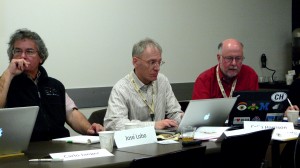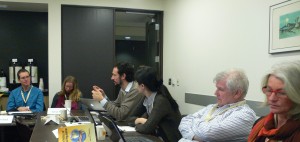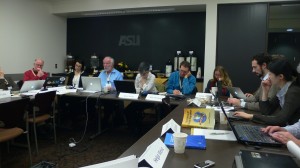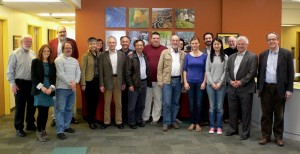++ REGISTRATION IS CLOSED++
Organized by the Global Climate Forum on behalf of the steering committee of the EU project GSDP in cooperation with the EU projects EUNOIA, FOC, INSITE, MULTIPLEX, NESS, and the G3M project, funded by the German BMU.
The study of problems as diverse as global climate change and global financial crises is currently converging towards a new kind of research – Global Systems Science. GSS is emerging hand in hand with the substantial advances in Information and Communication Technologies (ICT). The use of computer models, digitized data, and global virtual networks are vital for GSS, in the same fashion that GSS can become a trigger for truly disruptive developments in policy-oriented and socially useful ICT.
The purpose of this conference is to discuss a possible research program for Global Systems Science and to further build up the community of practitioners from science, policy and civic society working on the pressing global challenges of our times.
This conference is conceived as a two day-event with a third day for interested sub-groups and workshops. It is embedded in an on-going conversation taking place in many settings, including www.global-systems-science.org. The present program version may evolve further at the conference as a result of this conversation.
The conference is structured by plenary and break-out group sessions. It will develop from a format focused on plenary sessions on the first day towards break-out group targeted workshops on the third day. The second day will follow a hybrid format of plenary and break-out group sessions.
All participants are asked to actively contribute and participate in the different plenaries as well as the break-out group discussions. This second conference has attracted a significant number of remarkable researchers and practitioners from all over the world and therefore the opportunities for further networking and learning are unique. The event has been organized in a style that facilitates an open dialogue among all participants.
This event is part of a series of workshops carried out by the research network Global Systems Dynamics and Policy and follows the First Open Global Systems Science Conference carried out in November 2012. It also constitutes part of a series of open GSS conferences which shall continue in the years to come.
We are working on elaborating an ambitious research agenda driven by policy needs and developing and using ICT to meet policy and societal challenges in close consultation with policy makers and citizens.
For contributions during the conference please actively contribute to the GSS blog (www.global-systems-science.org). In case you would like to post but do not yet have access just send an email to web@globalclimateforum.org.
GSS Orientation Paper
Agenda Outline & Logistics
- Outline of conference sessions and break-out groups
- Agenda & Logistics
- Agenda & Logistics incl. Hotel (this version contains additional info on the conference accommodation)
Please note:
- Registration is closed, since only a limited number of seats is available, registrations were handled on a first-come, first-serve basis.
- Participation is free of charge.
- Unfortunately we are not able to cover travel and accommodation for conference participants, unless expressly agreed.
In case of difficulties please contact: Dr. J. David Tàbara




